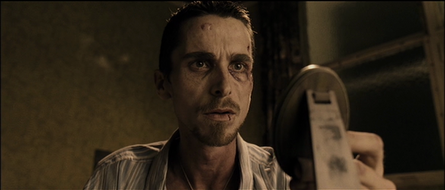Sleep could be seen as a very silly thing to sacrifice, or a very smart one depending on who you are. And I suppose that the most obvious question that gets raised when someone starts to toy with cutting back on their sleep is just how much sleep do you actually need to survive? Notice that I said survive there and not thrive? Well, I suppose what I really mean is how much sleep do we need to still be considered high functioning? And the results of my research may surprise you.
In general, the average adult requires between 7 to 9 hours of sleep per night; however (and this is a pretty big however), everyone actually requires a different amount depending on their individual genetic makeup. And furthermore, you can actually condition your body to function well on as little as 5 hours sleep per night. Yes, really, 5 hours of sleep a night and the secret to doing this lies not in the hours of sleep that you get, but in the quality of sleep that you are getting during those 5 hours of sleep.
When assessed, it was found that people who can thrive on 5 or 6 hours of sleep and still feel bright and ready to face the day are generally getting very high quality sleep when they are sleeping. They spend less time tossing and turning, more time in REM sleep when they are out and are generally able to relax on a whim if required to do so. For example, these people would be able to drop into a deep meditation mode easily or engage in reading a book in very noisy situations. However, let's be very real about this, being able to go without sleep and survive on only 5 hours of rest every day is a superhuman feat and before you commit to cutting your sleep down to radically small amounts it is also worth considering the side effects of having too little quality sleep in your life.
Apart from constantly feeling like a crap sandwich, a lack of sleep has also been linked to obesity, heart disease, stroke and high blood pressure, none of which are very alluring at all are they? And there are also some significant signs that you're not getting enough quality sleep that you can keep an eye out for like feeling moody or depressed, getting dizzy, suffering from breakouts and illnesses, having dark rings around your eyes, gaining weight, craving junk food, drinking more caffeine and forgetfulness.
Experts say that if you take more than 30 minutes to get sleep at night and always feel tired when you wake up then you are more than likely depriving your body of quality sleep. And it is also worth noting that the hormones in your body that control hunger and stress are also regulated by sleep, so odds are that if you're not sleeping enough you're going to be stressing out a lot and generally eating too much.
Everyone knows that sleep deprivation is an incredibly effective and insidious form of torture that attacks your deep biological functions and will eventually cause irreparable mental and physical health complications over time if continued; so do I recommend cutting your sleep back to fit more into your life? Well no, at least not for anyone else...but for me in the interim, I feel reasonably confident that the 6 to 6.5 hours of sleep that I allow myself to have each night is sustaining me just fine. However, I could have already wrecked my brain by now and have absolutely no idea what the hell I am saying, so please don't take my word for it! Go and experiment on yourself and your own sleep patterns to work out what your 'golden and ideal' amount of sleep hours is- you'll definitely have a perfect point, that much I do know for sure, but only you will be able to determine where that is.
In the meantime, make sure that you consider Dr Michael Breus' (from thesleepdoctor.com) recommendations for the perfect bedtime ritual to get more bang for your buck when you are asleep - and sweet dreams everyone!
1. Clean yourself -eg, take a shower, or at least wash your face, brush your teeth, floss and put on clean PJ's.
2. Keep your linen fresh and clean and where possible allow fresh air to circulate your room.
3. Avoid eating for at least an hour before sleep.
4. Commit to the same bedtime each night so that you establish a routine.
5. Drink a warm non-caffeinated beverage.
6. Turn off screens at least one hour before retiring.
7. Meditate.
8. Ensure that you have a dark quiet room or use eye shades and ear plugs.
9. Practise deep breathing and stretching before getting into bed.
10. Don't fight the sleep, if you're wrestling your sheets or tossing about, get up and make a warm drink and restart your ritual again. Remember that 2 hours of restful sleep is better than 4 hours of restlessness.

Release Date: 2004
Rating: R 18+
Running Time: 101 mins
An English language, Spanish psychological thriller, directed by Brad Anderson and written by Scott Kosar. This was the film that proved Christian Bale's unbelievable commitment to his roles, when he shed an incredible 28 kilograms, living on an apple, a coffee and water for four months prior to filming to portray his character Trevor Reznik with more conviction.
Trevor Reznik is a machinist and an insomniac. His lack of sleep and routine has made him painfully emaciated and less than attentive on the job. His revolted co-workers turn against him after he is involved in an accident that leaves a his co-worker armless. Trevor believes that it was co-worker 'Ivan' that caused his distraction and the accident, but no-one has ever heard of Ivan and there are no records of his existence; and so begins a series of strange and unsettling events in the life of Trevor.
This is quite a challenging watch, the general tone and colour saturation of the film render it bleak and grimy, making everything feel menacing. The events that unfold for Trevor are far from joyful, as he tries to make sense of his addled thoughts and the things that are occurring around him. It also becomes increasingly difficult for the viewer to assess reality from fantasy, as they join him on his terrible downward spiral.
FINAL SAY: I just want to sleep.
4 Chilli Peppers

 RSS Feed
RSS Feed